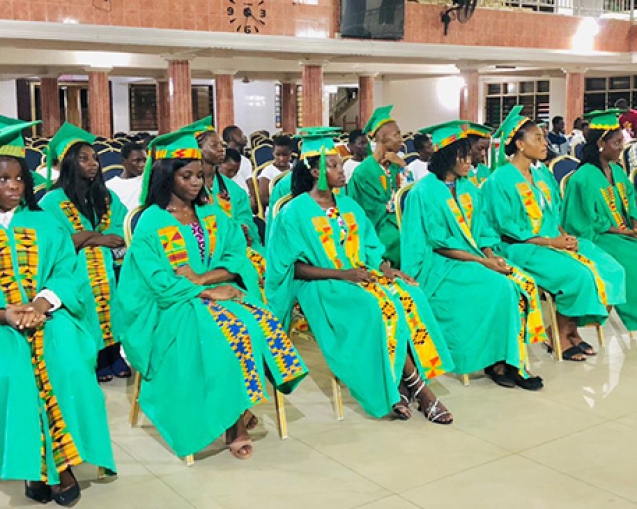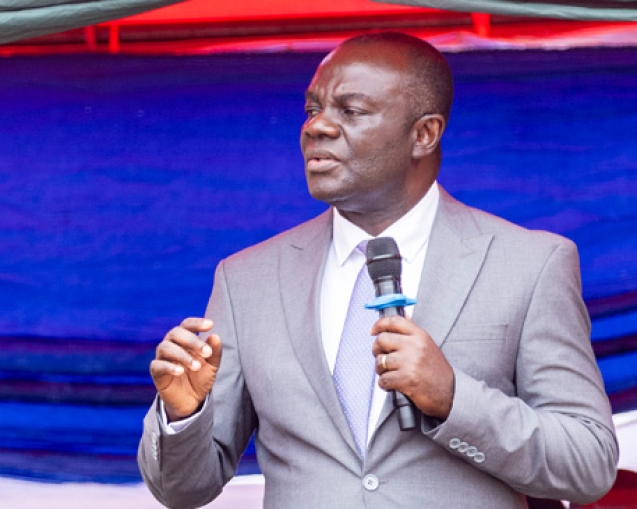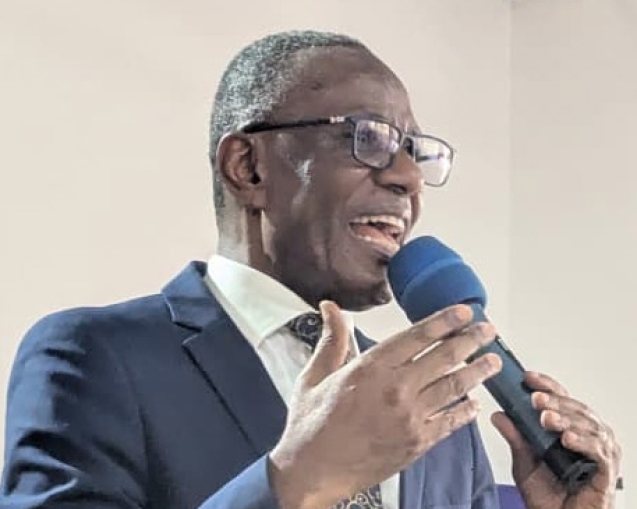The Ho Area Head of The Church of Pentecost, Apostle Dr. Dela Quampah, has stressed that there is a difference between someone who prophesies on the spur of the moment by the inspiration of the Holy Spirit and the person who functions in the prophetic office.
According to the Executive Council Member of the Church, “anyone can prophesy, but everyone who prophesies is not necessarily a prophet. In other words, any person can make prophetic utterances, but not everyone can function as a prophet.”
Apostle Dr. Quampah said this last Wednesday when he spoke on the topic, “The Role of The Prophetic Ministry in Equipping the Church” at this year’s National Prayer Conference at the Pentecost Convention Centre (PCC), Gomoa Fetteh.
Reading from 1 Samuel 10:10-11 and 1 Samuel 19:23-24 to buttress his assertion, the Ho Area Head cited two instances in the Bible where Saul prophesied even though he was not a prophet of God.
“It is therefore important to note that the practice of speaking a prophetic word during public worship does not necessarily make one a prophet,” he advised.
Expounding further, Dr. Quampah explained that a prophet is a person who has received a specific and personal call from God and consequently has the vocational commitment of consistently speaking God’s messages to the community of faith or demonstrating God’s power in response to human problems.
“Because of this calling, he or she maintains a lifestyle consistent with this ministry,” he added.
He further noted that the prophetic ministry is a vital aspect of the ministry of the Church because it is one of the ascension gifts given by Jesus to build up believers, who form the Church, into full maturity. In addition, prophecies strengthen, encourage, comfort and edify the Church (1 Corinthians 14:3-5, Ephesians 4:11-13), he said.
He further underlined the importance of the prophetic ministry by stating that the Bible consists of 17 prophetic books (16 in the Old Testament and 1 in the New Testament), making it (prophecy) a prominent part of the Christian ministry.
“The prophetic ministry impacts almost all aspects of theological discipline, including evangelism, pastoral care, homiletics (preaching), and Christian education or discipleship,” he also noted.
Bearing in mind the importance of the prophetic ministry, Apostle Dr. Quampah advised churches to be careful so that they do not discourage genuine prophecies in their efforts to weed out or curtail false prophecies.
The Ho Area Head, instead, proposed that “since we overcome false doctrine by teaching true doctrine; and we should also promote genuine prophecy to overcome false prophecy.”
He noted that prophets speak the mind of God into a situation for a purpose, predict the future to direct human behaviour, inspire hope in difficult situations, and pronounce God’s judgment upon human sinfulness.
Dr. Quampah, therefore, advised self-proclaimed prophets whose actions bring the prophetic ministry into disrepute to refrain from it.
PENTECOST NEWS.


















